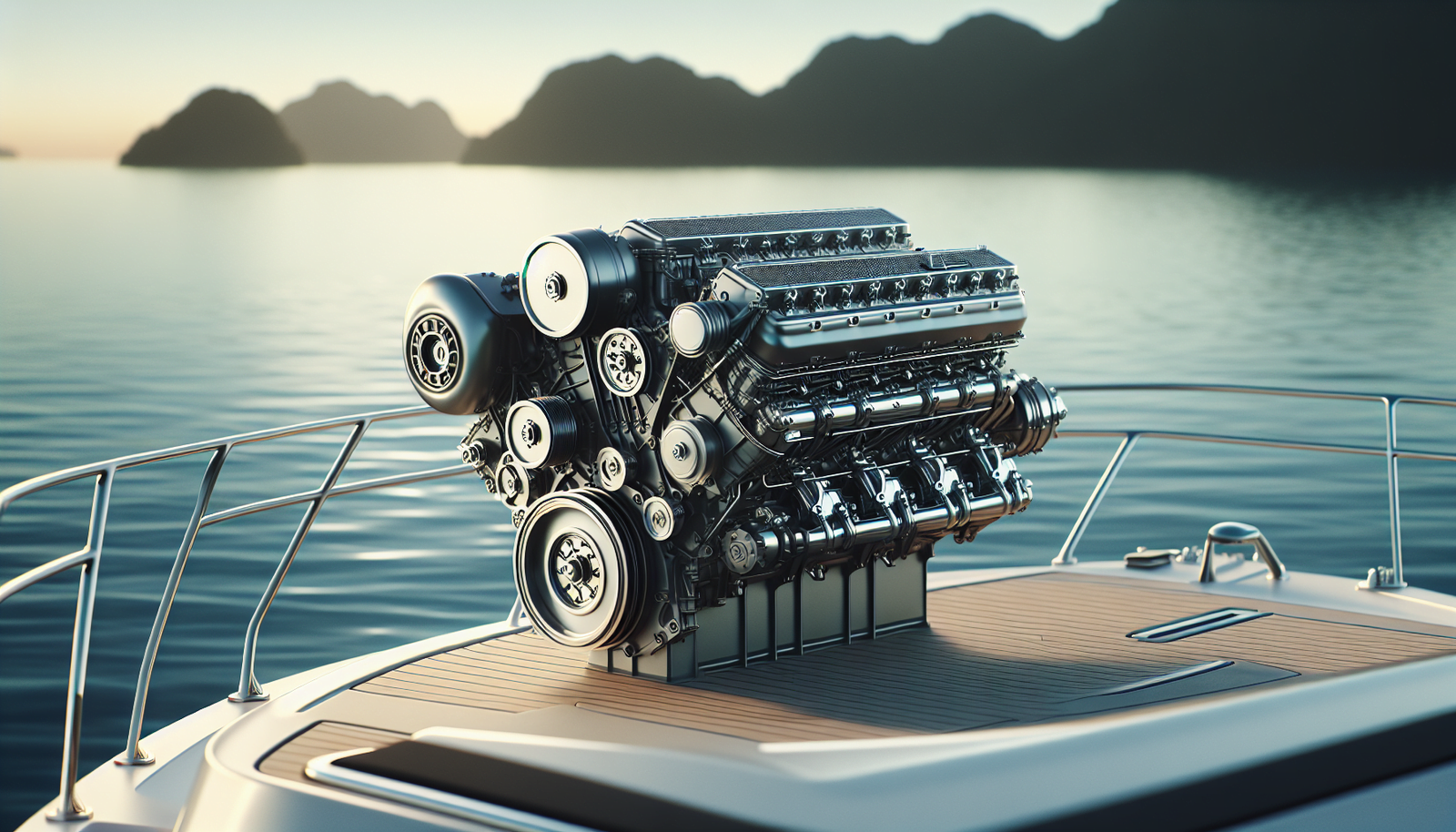In the world of boating, diesel engines often face a wave of misunderstandings and myths. “What Are The Most Common Misconceptions About Diesel Boat Engines?” picks apart the fanciful tales and unearths the truth. You’ll uncover the reality of diesel boat engines as we examine the most prevalent beliefs and weigh them against the actual facts. Prepare to set sail on a journey that wil debunk the misconceptions and shine a light on the true capabilities and attributes of the misunderstood diesel boat engine.
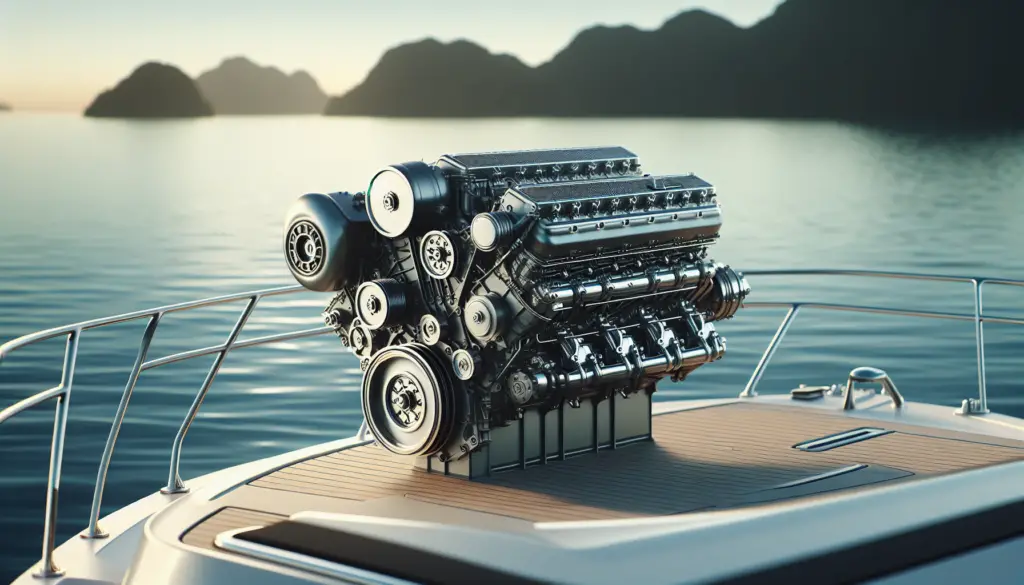
Diesel Engines Are Too Noisy
Diesel engines carry a reputation for being loud and rattling, especially in the context of their historical usage. Let’s not pretend otherwise – traditionally, they really were quite noisy. The high compression ratios used in diesel engines tended to cause more noise and vibration than their gasoline counterparts. You probably remember the old diesel cars and trucks, rattling away and causing quite a stir as they passed through.
Historical Noise Levels of Diesel Engines
Industrial revolution and onward, diesel engines became prominent due to their high efficiency, but they were frowned upon for their noise levels. The early versions of these engines involve a noisy combustion process. Excessive mechanical noise was also part of the package, emanating from the engine’s block and accessories.
Modern Advancements in Diesel Engine Technology
However, things have significantly improved in the modern age. Technological advancements have allowed manufacturers to design diesel engines that are much quieter than their predecessors. Modern diesel engine models use advanced high-pressure fuel systems, high precision injectors, and improved combustion processes, all of which work cohesively to minimize engine noise.
Comparison of Noise Levels Between Diesel and Gas Engines
As for a comparison with petrol or gasoline engines, the playing field has leveled down considerably. With the introduction of advanced noise reduction technology in diesel engines, the difference in noise levels between diesel and gasoline engines is hardly noticeable in most cases.
Diesel Engines Are More Polluting
Perhaps the most prominent misconception about diesel engines is their alleged “dirty” nature. While diesel engines traditionally emit more particulates and Nitrogen Oxides (NOx) than petrol engines, current emission standards have largely bridged this gap.
Emission Regulations Applied to Diesel Engines
Diesel engines have been under the spotlight for “emission scrutiny” since the introduction of emission regulations. These regulations forced automakers to come up with innovative solutions to reduce emissions drastically.
Advancements in Diesel Technology Reducing Emissions
Today, advancements like Exhaust Gas Recirculation (EGR), Diesel Particulate Filters (DPF), Selective Catalytic Reduction (SCR) systems, and clean diesel technology have made diesel engines cleaner than ever before. They have drastically reduced the amount of NOx, soot, and other harmful particulates emitted by diesel engines.
Comparative Pollution Levels Between Diesel and Petrol Engines
When one compares modern diesel engines with their petrol counterparts, the pollution levels are comparable. Advanced diesel engines, equipped with the latest emission control systems, easily abide by the stringent emission norms that are in effect today.
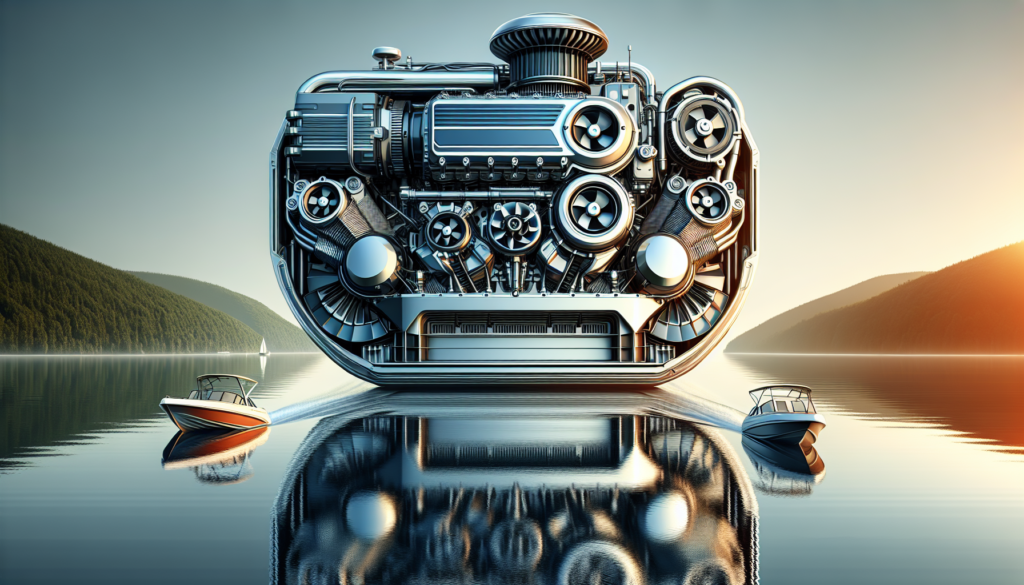
Diesel Engines Have Poor Performance
Another common myth about diesel engines is that they perform poorly compared to petrol engines. But is this really true?
Understanding Engine Performance
Engine performance is generally gauged by its power output, fuel efficiency, and torque. It’s essential to remember that each type of engine has its own strengths and weaknesses.
Torque and Efficiency of Diesel Engines
In the case of diesel engines, they are known for their impressive torque and fuel efficiency. The high torque output of diesel engines makes them excellent powerhouses for towing and carrying heavy loads, while the higher fuel efficiency makes them an economic choice for long-haul travel or heavy-duty usage.
Comparing Diesel and Petrol Boat Engine Performance
When we compare diesel and petrol engines specifically in boat applications, it becomes a matter of choosing between the high-speed performance of petrol engines and the substantial torque and fuel efficiency of diesel engines. Choosing one over the other truly depends on the specific usage requirements and preferences of the vessel owner.
Diesel Engines Require More Maintenance
The notion that diesel engines require more maintenance has been around for a while, and while there’s a kernel of truth, it’s not as clear cut as it appears.
Maintenance Schedules for Diesel Engines
Yes, it’s true that diesel engine maintenance schedules are typically more frequent than those for petrol engines. And when maintenance is required, it can be more complex due to the engine’s different components and systems, such as the fuel injection system.
Key Factors Impacting Engine Maintenance
However, the important factor to remember is that maintenance is not just about frequency – it’s also about quality. The robust nature of diesel engines often leads to longer-lasting parts which can offset the additional maintenance requirements.
Comparing Maintenance Requirements of Diesel and Petrol engines
So, in comparison to petrol engines, while diesel engines might demand a bit more maintenance, most diesel engine owners feel that the remarkability of these engines in terms of their longevity, reliability, and efficiency tips the scale in their favor.
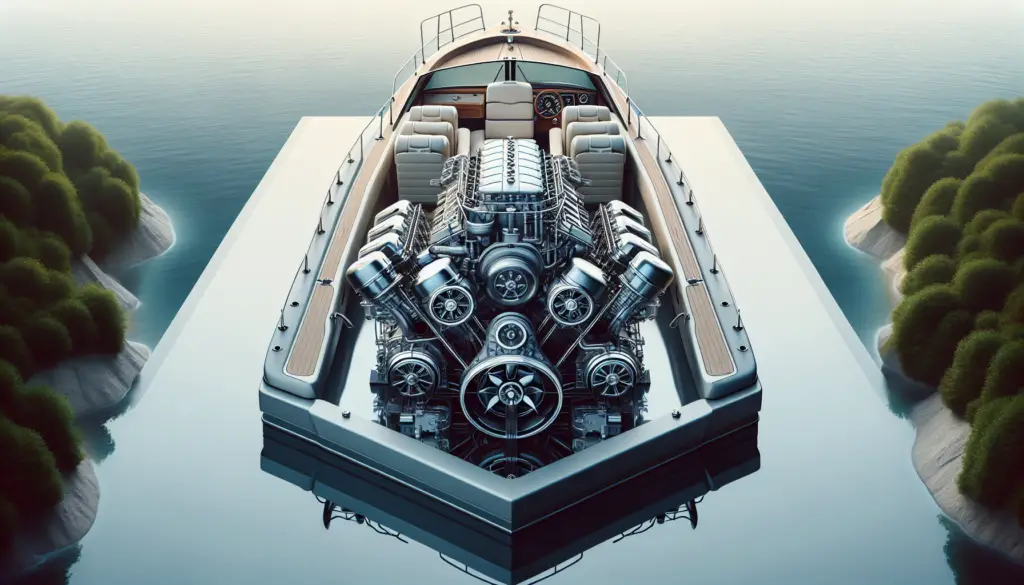
Diesel Fuel Is More Expensive
Diesel fuel traditionally costs more at the pump compared to petrol. However, what’s vital to understand here is the full picture when looking at fuel costs.
Understanding Fuel Prices
Fuel prices are influenced by multiple factors including crude oil costs, refining costs, distribution costs, taxes, and local demand. These factors can change the cost dynamics and they fluctuate over time and geographical location.
Comparing the Cost Mileage Between Diesel and Petrol Engines
When it comes to cost mileage, you must recognize that, while diesel fuel may be more expensive per gallon, diesel engines typically offer better fuel economy than petrol engines. This means you’re often getting more miles per gallon, which can contribute to offsetting the higher price of diesel fuel.
Fuel Efficiency of Diesel Engines
Diesel engines, on average, can be up to 30% more fuel-efficient than their petrol counterparts. Therefore, you might spend a bit more upfront on diesel fuel, but you’re likely to make those savings back in fuel economy over time.
Diesel Engines Are Heavier
When considering the choice of engine for a boat or any machine for that matter, weight is certainly a crucial determinant.
Weight Considerations for Boat Engines
In the context of boats, the engine’s weight significantly impacts the stability, fuel efficiency, and cargo capacity of the vessel. The engine’s weight even influences the boat’s maneuverability, particularly at lower speeds.
Comparing the Weight of Diesel and Petrol Engines
It is true that diesel engines tend to be heavier than petrol engines, given their sturdy construction and features like turbochargers. But it’s also worth noting that this additional weight contributes to the engine’s durability, and in the case of boats to the stability of the vessel itself.
How Engine Weight Impacts Boat Performance
When contemplating engine weight and boat performance, remember it’s vital to look at the bigger picture–what you might lose in terms of additional weight, you could gain in terms of engine longevity, fuel efficiency, and even stability on the water.
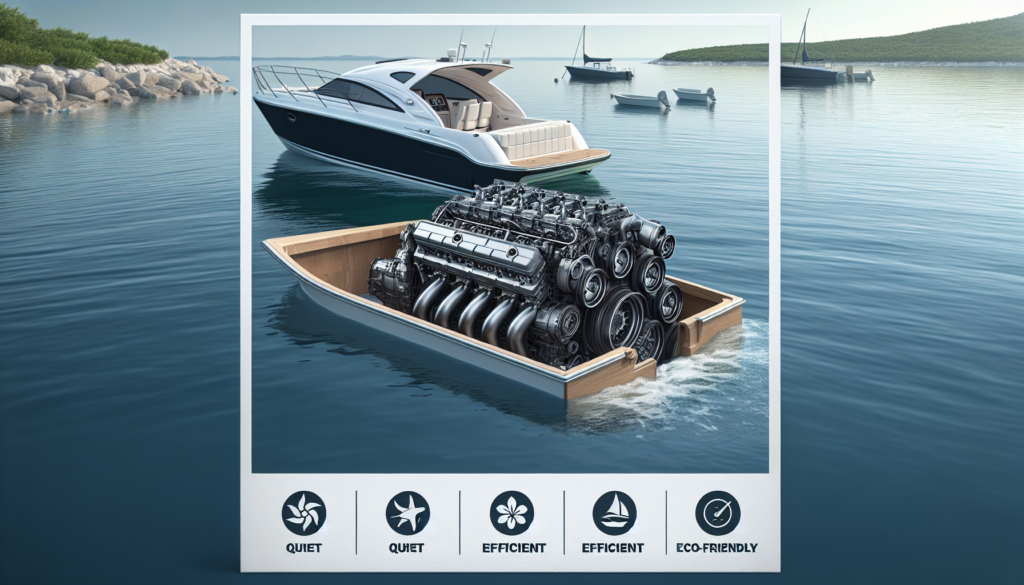
Diesel Engines Are Not Suited For Small Boats
While commonly thought, the claim that diesel engines are ill-suited for small boats needs a bit of debunking.
The Importance of Correct Engine Size for Boats
Choosing the right engine for a boat will be largely determined by the vessel’s size and the owner’s intended use. That said, there should not be a blanket rule that dismisses diesel engines for small boats.
Advantages of Diesel Engines in Small Boats
Even in small boats, diesel engines can have their advantages. They provide more torque, which can be beneficial for towing water-skiers, for instance, or for efficient cruising. Diesel engines also tend to be more fuel-efficient, which could lead to longer range for extended trips.
Examples of Small Boats Using Diesel Engines Successfully
Several small boats use diesel engines successfully. From fishing boats to recreational vessels, many owners have found the advantages of diesel engines outweigh any potential drawbacks, dispelling the myth that they aren’t a good fit for small boats.
Diesel Engines Have Shorter Lifespans
The lifespan of an engine can be influenced by a multitude of factors, including maintenance, usage, and build quality. However, the notion that diesel engines have shorter lifespans does not hold water.
Factors Impacting Engine Lifespan
Like any mechanical system, the lifespan of an engine greatly depends on the maintenance it receives along with the operating conditions it often runs under.
Expected Lifespan of Diesel Engines
The robust and durable nature of diesel engines often contributes to them having longer lifespans compared to their petrol counterparts. With proper maintenance, many diesel engines can last well beyond the expected lifespan of a comparable petrol engine.
Comparing the Longevity of Diesel and Petrol Engines
When comparing the longevity of diesel and petrol engines, it’s customary to find diesel engines lasting longer. It’s not uncommon for diesel engines to clock up hundreds of thousands of miles with regular maintenance and care.
Diesel Engines Are Difficult To Start In Cold Weather
Starting engines in cold weather can be a universal struggle, regardless of the fuel type. However, diesel engines have often been singled out for this issue.
Starting Difficulties in Cold Weather for All Engines
Cold weather creates challenges for all engines. The low temperatures cause the engine oil to thicken, which makes it harder for the engine components to move. But for diesel engines, the problem is more pronounced due to the cold start ignition process.
Techniques and Technologies to Start Diesel Engines in Cold Weather
There are, however, a number of techniques and technologies available to overcome this issue, such as engine block heaters, glow plugs, and fuel additives, making it far easier to start diesel engines even in freezing conditions.
Comparison of Cold Weather Starting Between Diesel and Petrol Engines
Making a fair comparison between diesel and petrol engines, we must admit that petrol engines typically start more easily in cold weather. However, thanks to the modern innovations mentioned earlier, this difference in cold-starting characteristics between the two is far less noticeable than it used to be.
Diesel Engines Are Less Safe
Safety is paramount when it comes to boat engines or any other vehicle engines for that matter. Safety misconceptions about diesel engines, nevertheless, need addressing.
Safety considerations with Boat Engines
Safety considerations with boat engines primarily involve the risk of fire, explosion, fumes and fuel leaks, among other things.
Specific Safety Features of Diesel Engines
Diesel engines have a lower risk of catastrophic failures compared to petrol engines. This is mostly due to diesel fuel’s lower volatility, reducing the risk of accidental ignition. Diesel engines also operate at lower temperatures, reducing the risk of overheating.
Comparison of Safety Records Between Diesel and Petrol Engines
When comparing safety records of diesel and petrol engines, diesel engines are generally considered safer. Although all engines carry some degree of risk, diesel engines have a lower risk of fire and explosion due to the reasons mentioned. That being said, proper maintenance and following established safety protocols is key to ensuring the safe operation of any engine, whether diesel or petrol.
In conclusion, many misconceptions surround diesel engines, fueled partly by their past reputation and partly by misinformation. But with advancements in technology, changes in regulations, and continued innovation, the truth about diesel engines is far more nuanced. It’s always crucial to have all the facts before forming an opinion, especially when considering the suitability of diesel engines for a specific application like in boats.

